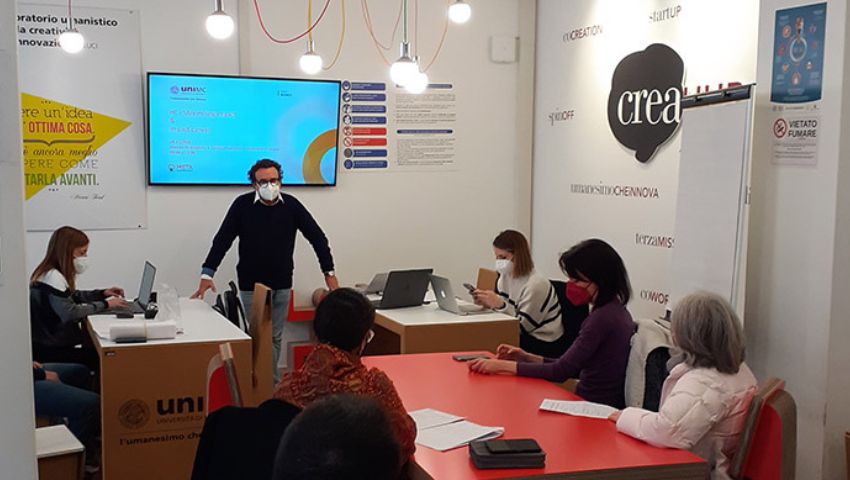More than half of humanities and social science researchers studied cannot identify a “real-world” purpose for their research
“51% of the researchers can’t see any impact outside of academia,” was the initial message from META Group, who conducted a workshop for humanities and social science (HSS) researchers at the University of Macerata. “Usable HSS results are not mythological creatures, but a strategy is needed for exploiting their use.”
Led by META Group’s Vice President and innovation expert, Andrea di Anselmo, the workshop was the first of its kind, a new pilot programme designed to elicit premium useable innovations from HSS research. The programme is tailored for universities working in the HSS domain, and if you are a higher level institution looking to translate your HSS research from the lecture hall to the market, reach out and talk to META’s team.
According to the survey, a quarter of researchers face issues with communication beyond the academic environment. They also cited a lack of knowledge and capabilities on designing HSS research with the goal of using the results, and 20% reported a need to strengthen their experience in creating products for the market. These are the challenges addressed by META Group’s approach.
META’s workshop focused on delivering a methodology and toolkit that both researchers, investigators, technical and administrative staff can use to further the innovative success of R&I from HSS topics. Case studies with practical exercises helped participants to take a more in-depth problem-solving and use -oriented view of their research result, and showed them how to design an exploitation roadmap, strengthened their pitching skills and better prepare to Horizon Europe new calls.
Humanities and the social sciences are not fields that one thinks of most often as a place for developing impactful innovation. But this does not mean that they cannot contribute to solving societal and business challenges! Researchers can make the difference and look for a different approach, asking themselves some questions when deliberating on how to use their results:
- What problems are our results going to address, and how are they going to be better than the available alternative solutions ?
- How can I ensure the use of my HSS research result and make it sustainable over time?
- How can I maximise impact when using my HSS research result?
- What happens after the project ends?
This first pilot will be followed by another when researchers, coaches and people in charge of generating impact for the university will get together in multidisciplinary teams and work on fostering use of their results.
Using a HSS research result is not an easy game, but it is possible if you have a clear strategy that is carefully designed and implemented.

